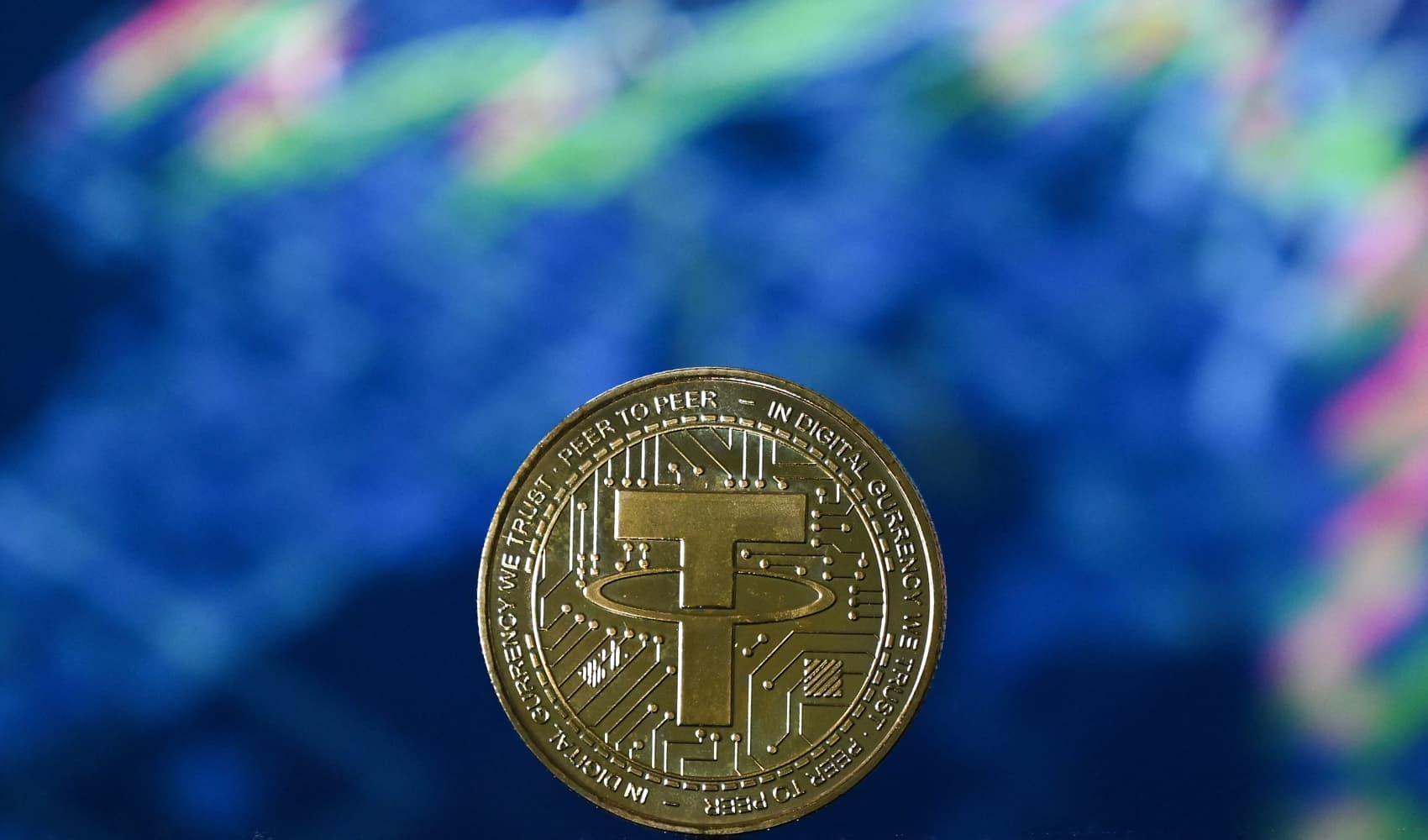
Rue Sainte-Catherine crowded with pedestrians in Bordeaux, France. This is one of the longest shopping streets in Europe.
This was CNBC's live blog covering European markets.
European markets closed higher on Tuesday, rebounding as global investors braced for U.S. President Donald Trump's trade tariffs set to come into effect on Wednesday.
The regional Stoxx 600 index closed 1.07% higher, slightly paring gains after the Washington Post reported that White House aides had drafted a proposal to impose tariffs of around 20% on most imports to the U.S.
Stocks were boosted after euro zone inflation cooled as expected to 2.2% in March, according to data released by Eurostat.
Industrial group Thyssenkrupp meanwhile closed 6% after analysts at Kepler Cheuvreux upgraded the stock to "buy" from "hold," according to Reuters, citing tailwinds behind steel and defense amid higher fiscal spending in Germany. The DAX index of German blue chips led gains among major bourses Tuesday, up 1.7%.
Top posts
- Von Der Leyen: EU open to negotiate on tariffs but will take 'firm counter-measures if necessary' | view post
- UK Prime Minister Starmer says talks with U.S. over economic deal are 'well advanced' | view post
- Euro zone inflation dips to 2.2% in March | view post
- Goldman Sachs trims UK growth forecast due to trade spillover hit | view post
- Trump is thinking longer term but is playing a 'dangerous game,' strategist says | view post
The Stoxx 600 is coming off four straight daily declines and a 1.5% loss in the prior session as well as its first monthly loss of 2025, with markets mired by tariff uncertainty.
Money Report
Asia-Pacific stocks climbed while U.S. stocks opened lower on Tuesday as the market awaited clarity from Trump regarding his tariff policy rollout on Wednesday.
Get a weekly recap of the latest San Francisco Bay Area housing news. Sign up for NBC Bay Area’s Housing Deconstructed newsletter.
A slew of tariffs are set to come into effect, including a 25% levy on "all cars that are not made in the United States." The president is also expected to announce his plan for reciprocal tariffs. The Trump administration has dubbed April 2 "Liberation Day."
Trump said this week that his reciprocal tariffs plan will target all countries when they are announced Wednesday.
White House considering roughly 20% tariff on most imports, report says
White House aides have drafted a proposal that would levy tariffs of roughly 20% on most imports, The Washington Post reported Tuesday.
The report cited three people familiar with the matter. It also said White House advisors cautioned that several options are still on the table, meaning the 20% tariffs may not come to pass. Another plan being considered is the country-by-country "reciprocal" approach, according to the Post.
The report comes a day before April 2, when President Donald Trump is set to announce his larger plans for global trade. The date has loomed over Wall Street, where stocks have been struggling in part due to uncertainty around rapidly changing global trade policy.
— Jesse Pound
U.S. Stocks open lower
U.S. stocks opened lower for a second-straight day on Tuesday, as investors brace for President Donald Trump's reciprocal tariff announcement.
The S&P 500 fell 0.3%, while the Nasdaq Composite pulled back 0.4%. The Dow Jones Industrial Average slipped 164 points, or 0.5%.
— Brian Evans
HSBC backs UK fintech Zepz with $165 million

British fintech firm Zepz said Tuesday that it's raised $165 million in debt financing from HSBC to bolster its financial footing and "capture new market opportunities."
Zepz, which owns money transfer brands WorldRemit and Sendwave, said it secured a $110 million revolving credit facility from HSBC Innovation Banking, the bank's venture lending unit, as well as a $55 million term facility underwritten by HSBC Private Credit.
The fresh financing replaces a $80 million debt funding arrangement Zepz had struck with HSBC previously. It comes after CNBC reported earlier this year that Zepz laid off 200 workers — or roughly 20% of its global workforce — and closed down hiring entities in Poland and Kenya.
— Ryan Browne
Goldman Sachs trims UK growth forecast due to trade spillover hit

Goldman Sachs economists on Tuesday downgraded their U.K. economic growth forecast to 0.8% from 0.9% for 2025, also trimming the country's expansion outlook to 1.2% from 1.3% for 2026.
"Our baseline assumption is that the US imposes duties on critical goods imports from the UK. But we assume that the UK ultimately avoids a reciprocal tariff given balanced trade," they said in a note.
However, the investment bank's new baseline assumes larger U.S. tariffs on other economies including the EU, resulting in lower growth for both the U.S. and euro area, "implying greater spillovers to the UK."
The British economy has suffered through a mixed 2024, which began with a modest recession rebound, then slowed to near stagnation through the second half.
The introduction of sweeping U.S. tariffs is broadly weighing on global economic and market sentiment.
Goldman last week cut its S&P 500 3-month return forecast from flat to a 5% decline, also revising its 12-month return outlook from 16% to just 6% of growth, citing "higher tariffs, weaker economic growth, and greater inflation" than previously assumed.
— Jenni Reid
Euro zone inflation dips to 2.2% in March
Annual euro zone inflation dipped as expected to 2.2% in March, according to flash data from statistics agency Eurostat published Tuesday.
The Tuesday print sits just below the 2.3% final reading for February.
The figures, which are harmonized across the euro area for comparability, boosted expectations for a further 25-basis-point interest rate cut from the European Central Bank during its upcoming meeting on April 17.
— Sophie Kiderlin
UK Prime Minister Starmer says talks with U.S. over economic deal are 'well advanced'
U.K. Prime Minister Keir Starmer said Tuesday that his government was in "advanced" talks with the U.S. over potential economic deals as tariffs loom.
"I don't think anybody wants to see tariffs. We're working hard on an economic deal which we've made rapid progress on, and I hope we can make really speedy resolutions on," Starmer told Sky News.
Starmer added that the discussions, which would normally "take months or years," were "well advanced."
"The likelihood is there will be tariffs. Nobody welcomes that. We're obviously working with the sectors most impacted at pace on that. Nobody wants to see a trade war. But I have to act in the national interest, and that means that all options have to remain on the table," Starmer said.

On whether that meant refraining from retaliatory tariffs in the short term, Starner said, "I'm not going to go ahead of myself. But I am talking to the sectors most impacted, and I think what they want most is a calm and collected response to this, not a knee-jerk response."
"We are of course negotiating an economic deal which will I hope mitigate the tariffs."
While the U.K. is set to be hit by several of U.S. President Donald Trump's universal tariffs, including those already introduced on steel and aluminum, analysts say the country may avoid the kind of direct action the U.S. has threatened on the likes of the European Union, thanks to its more balanced trade relationship. Starmer visited the White House in February, where he appeared to strike a friendly tone with Trump, who said following the meeting that the U.K. could broker a "real trade deal."
— Jenni Reid
Von Der Leyen: EU open to negotiate on tariffs but will take 'firm counter-measures if necessary'

The European Union is open to negotiations with the U.S. on tariffs but will take retaliatory measures if necessary, European Commission President Ursula von der Leyen said in a speech Tuesday.
"We are open to negotiations. We will approach these negotiations from a position of strength. Europe holds a lot of cards, from trade to technology to the size of our market. But this strength is also built on our readiness to take firm counter-measures if necessary. All instruments are on the table," she said.
Von der Leyen repeatedly stressed that the EU disagreed with the escalation in trade disputes triggered by U.S. President Donald Trump, and said countries should work together to tackle issues such as overcapacity, imbalances, unfair subsidies, denial of market access and intellectual property theft.
"But my message to you today is we have everything we need to protect our people and our prosperity. We have the largest single market in the world, we have the strength to negotiate, we have the power to push back," she said.
Von der Leyen said the EU's other approaches to the looming "reciprocal tariffs" would be to strengthen its trade relationships with other partners and double down on its own single market.
— Jenni Reid
Europe stocks open higher
European stock markets opened higher Tuesday, with the Stoxx 600 index up 1% at 8:08 a.m. U.K. time.
The U.K.'s FTSE 100 and Germany's DAX were both around 1% higher, while France's CAC 40 rose 0.8%.
— Jenni Reid
Trump is thinking longer term but is playing a 'dangerous game,' strategist says
U.S. President Donald Trump is counting on a longer-term rebound in the economy and markets with his extreme tariff plan, but he is playing a "dangerous game," according to one strategist.
"The market will take some time to digest what's happening tomorrow, I don't think we will see a big relief in the sense that Trump will come out and provide sweets to the market, saying tariffs will be less severe than what's suspected," Wolf von Rotberg, equity strategist at Safra Sarasin Sustainable Asset Management, told CNBC's "Squawk Box Europe" on Tuesday.
"I would think that through the year he'll likely keep the temperature quite high," von Rotberg said, adding that this is because of Trump's experience as president in 2018 to 2019 when the Federal Reserve was in a similar stage of a cycle of rate hikes and cuts.
"Back then he broke the back of the cycle, he broke the back of the equity market, but he also brought the Fed to turn much move dovish and he had a much better year in 2019. The cycle recovered, growth picked up, was great in the third quarter of 2019, consumption came back and the equity market had rebounded by April ... Trump is not thinking about the immediate impact but one step further," von Rotberg told CNBC.

"He won't provide a put to the market, the only put which can be provided to the market is the Fed, and in order to get the Fed to ease and turn more dovish from where they are he needs to produce some downside on the cycle and he may have to produce some downside on the market as well."
Wolf von Rotberg added that this was a "dangerous game," since inflation remains well above target and could be pushed higher by inflation, curbing any Fed pivot — and because the U.S. government deficit has widened and would likely increase during a downturn, fueling fears in the rates market.
— Jenni Reid
European markets: Here are the opening calls
European markets are expected to open lower Wednesday as global traders prepare for U.S. President Donald Trump's trade tariffs.
The U.K.'s FTSE 100 index is expected to open 24 points lower at 8,558, Germany's DAX down 38 points at 22,501, France's CAC 4 points lower at 7,872 and Italy's FTSE MIB 74 points lower at 37,977, according to data from IG.
There are no major data releases Wednesday. Earnings are set to come from Raspberry Pi.
— Holly Ellyatt
Spot gold crosses $3,130, hitting fresh record
Spot gold hit a fresh record high of $3,132.17 at 9.15 a.m. Singapore time on Tuesday, after crossing the $3,100 threshold on Monday.
The price of the precious metal has been on the rise as investors flock to the safe haven asset amid concerns around U.S. President Donald Trump's fresh tariffs.
— Amala Balakrishner






